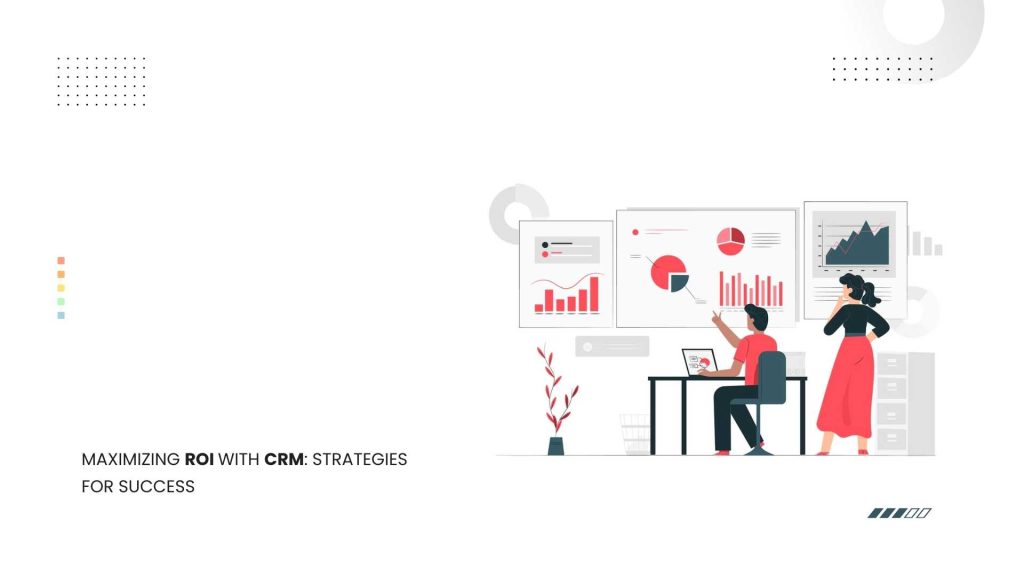In the current fast-paced business environment, Customer Relationship Management(CRM) systems have become essential for organizations of all sizes. A properly executed CRM can assist businesses in establishing and nurturing important customer relationships, improving operational efficiency, and increasing profitability. It is crucial to devise efficient implementation strategies. We will delve into the different methods through which companies can enhance their CRM investments.
Top Metrics to Pay Attention
Improved Customer Retention
Customer retention is a critical metric for small businesses. A well-implemented CRM system helps understand consumer behavior, choices, and feedback, allowing you to tailor your services to meet their needs. By engaging with customers and providing customized experiences, your business can foster loyalty and reduce churn rates.
Upselling Opportunities & Increased Sales
CRM systems are designed to provide comprehensive insights into customer purchasing patterns and preferences. Businesses can identify upselling opportunities and craft personalized sales pitches by analyzing this data. This increases sales and enhances customer satisfaction as customers receive products and services that closely match their needs.
Reduced Operations Costs
Another effective benefit of using a CRM is streamlining every assignment. By automating routine tasks, CRM reduces your team’s workforce, freeing them up to focus on more strategic activities. This automation leads to reduced labor costs and increased operational efficiency.
Greater Efficiency & Less Time Per Sale
Efficiency in the sales process is paramount for small businesses. A CRM system organizes and centralizes customer information, making it available to your sales team. It decreases time spent on administrative tasks and accelerates the sales cycle, allowing your team to close deals faster and more effectively.
Tips to Maximize Your CRM’s ROI
Measure Performance Regularly
Regular performance measurement is vital for understanding how well your CRM serves your business. Track KPIs such as customer acquisition costs, sales conversion rates, and customer satisfaction scores. Use these insights to continuously refine CRM strategies and ensure they align with your business goals.
Utilize & Customize CRM Features
Most CRM systems come with various elements that can be tailored to your business needs. Take full advantage of customization options to adapt the CRM to your workflows. It might include customizing dashboards, setting up automated workflows. Customizing the CRM ensures it supports and enhances your unique business processes.
Invest In User Training
A CRM system is only as good as the people who use it. Invest in training for your team to assure they understand how to use the CRM effectively. It includes basic functionalities and advanced features that can drive more significant results. Regular training sessions and updates on new features can keep your team adept and engaged.
Align Your Business Goals & CRM Strategies
Your CRM strategy should be closely aligned with your overall business objectives. Whether your goals are to improve customer service, increase sales, or enhance operational efficiency, your CRM should support these aims. Review business goals and adjust CRM strategies to remain in sync.
Conclusion
CRM system can be a powerful tool for small businesses, driving growth and efficiency when implemented effectively. Acumatica’s CRM software, for example, provides robust capabilities that enable enterprises to enhance the overall customer experience and deliver responsive customer service.
By focusing on key metrics, customizing features, investing in user training, and aligning CRM strategies with business goals, small businesses can maximize their CRM’s ROI and achieve sustained success.

Vijay comes with a vast experience in ERP and enterprise solutions space with about 20 years of experience in various packaged application like Acumatica, SAP, Orion, Salesforce.com, SugarCRM and, SalesLogix.

